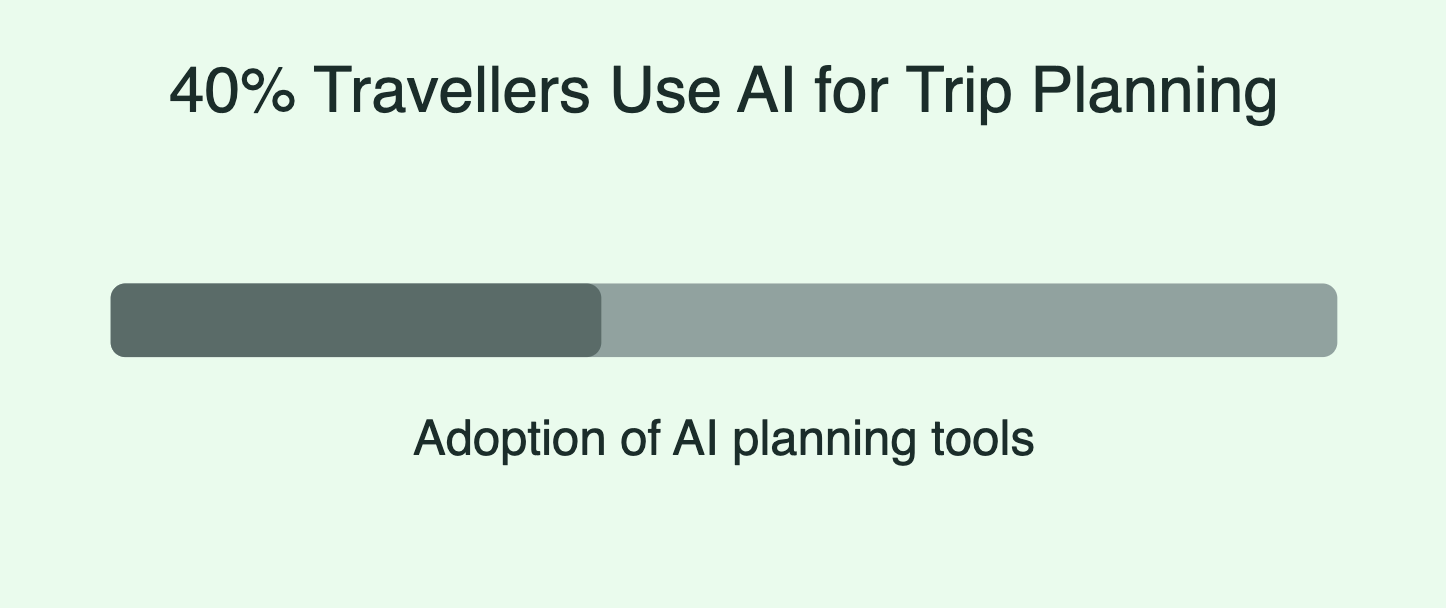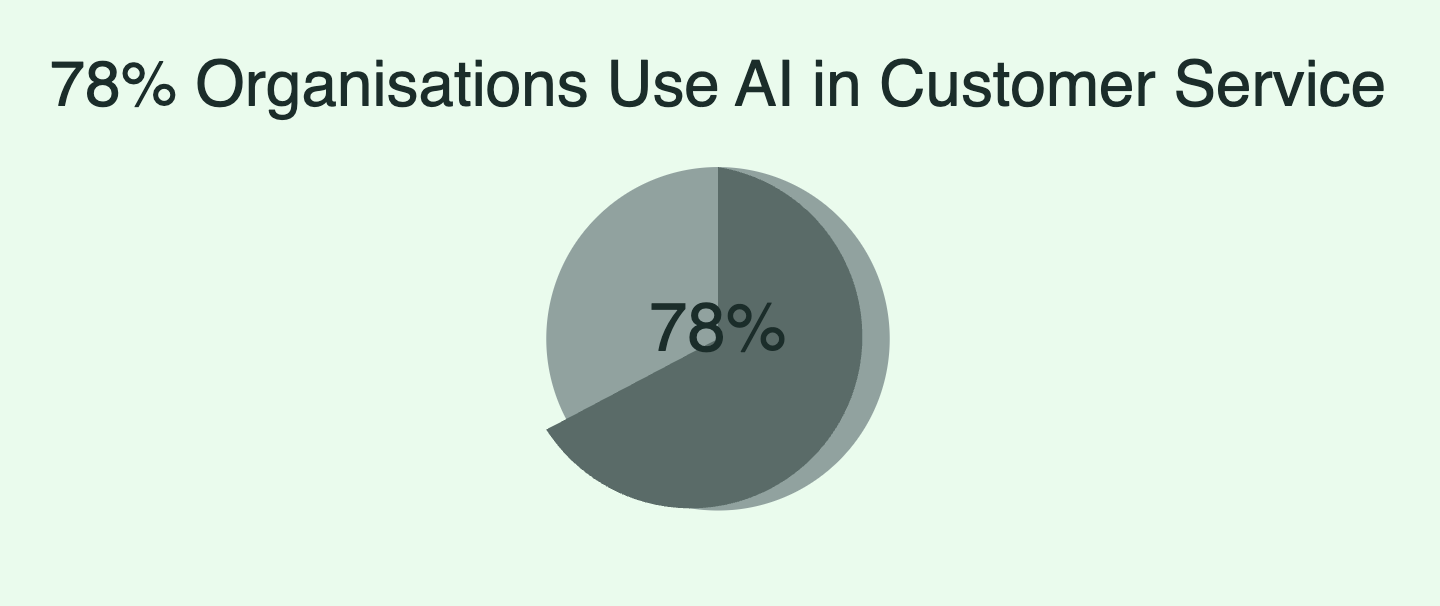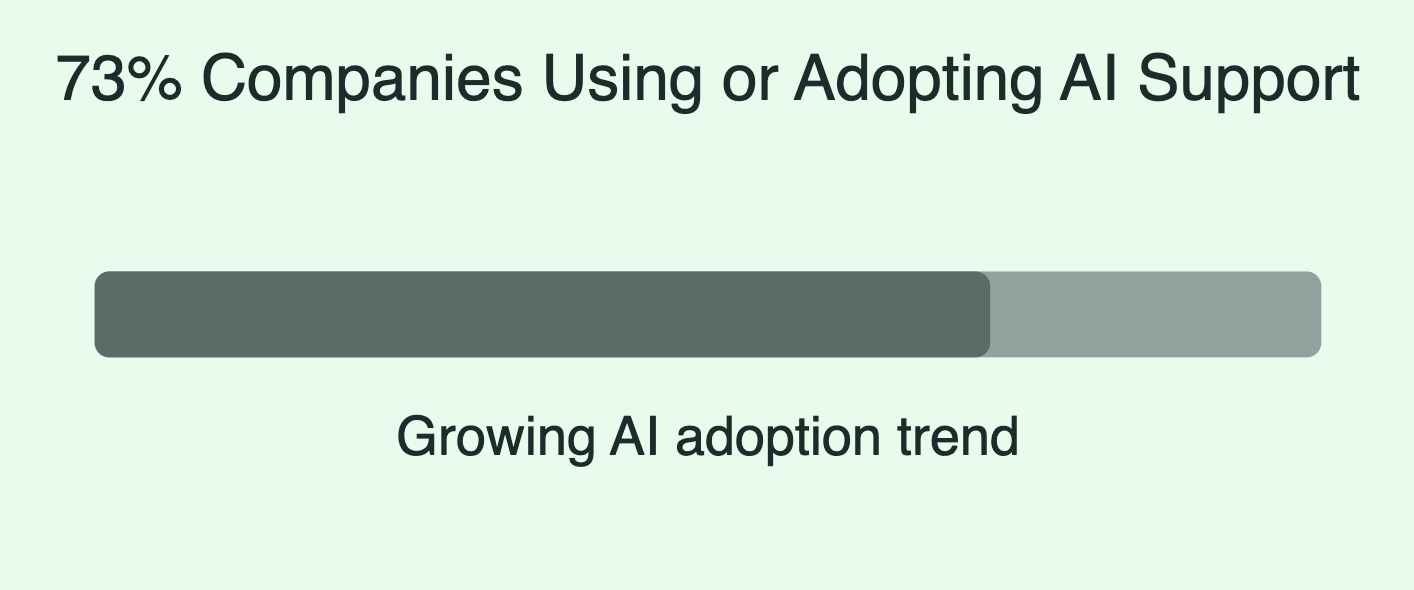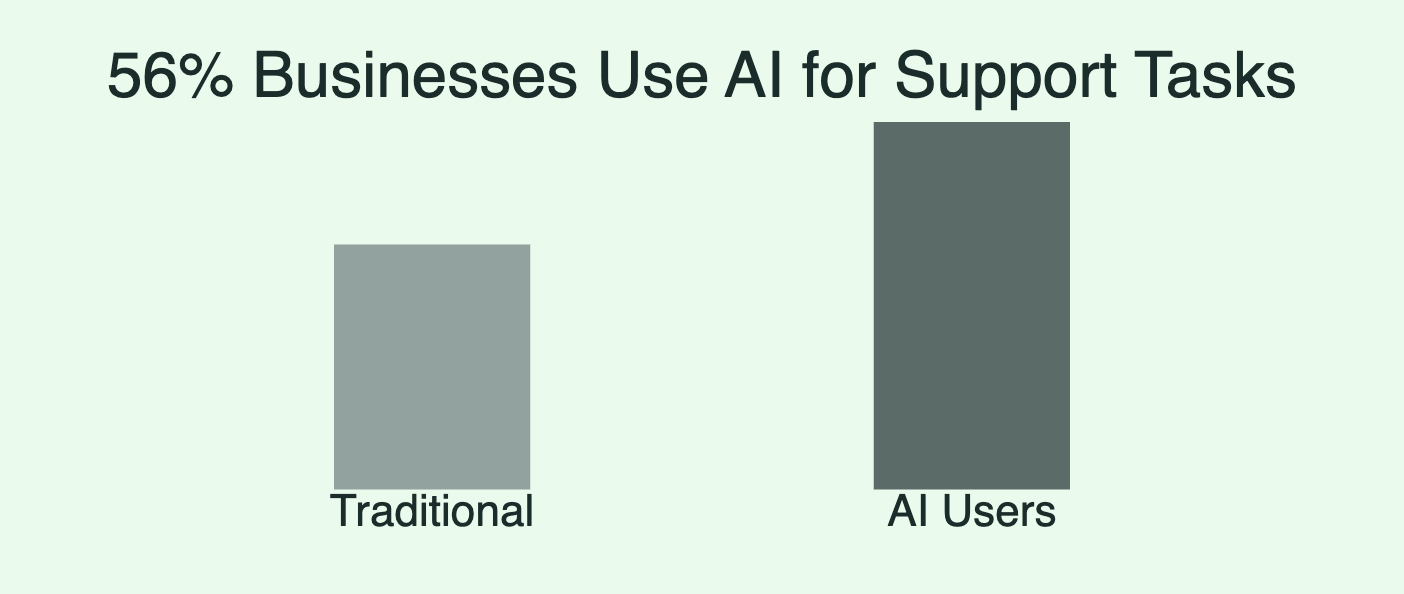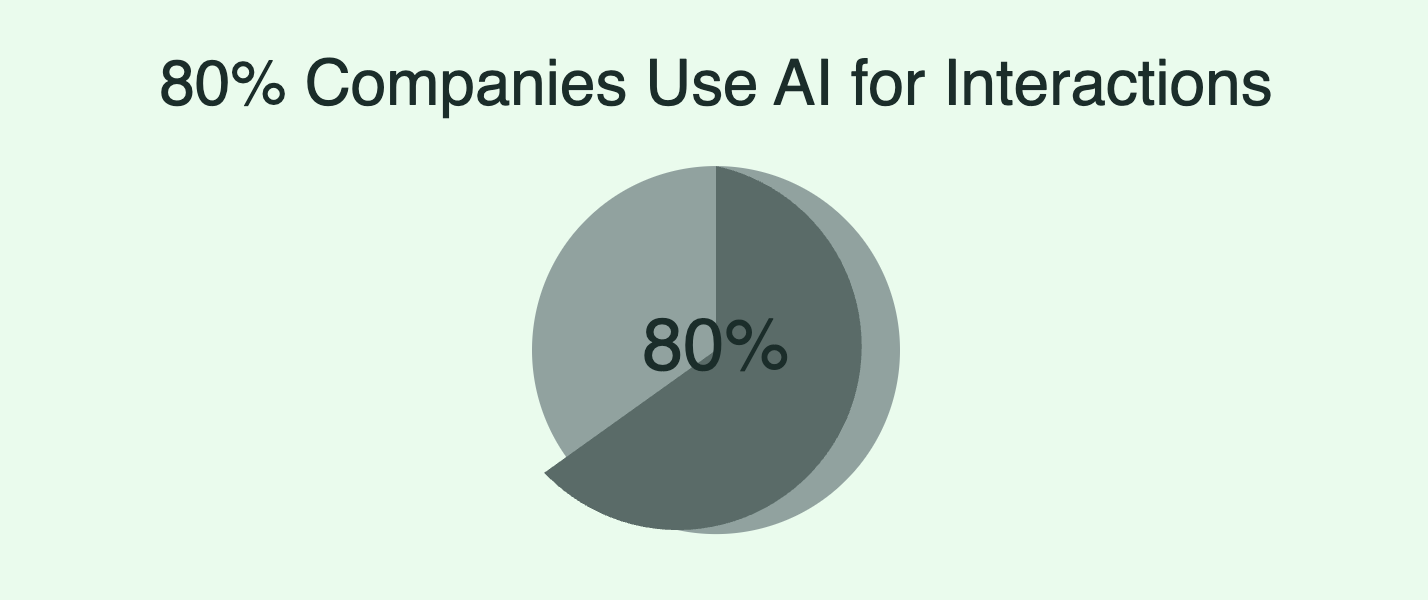AI-Driven Customer Service in Travel & Hospitality: Booking Assistance, FAQs & Itinerary Support
Executive Summary
Travel and hospitality are undergoing a structural shift driven by conversational AI. Customer expectations have moved toward instant responses, personalised recommendations, and seamless booking flows. AI chatbots and agents—powered by LLMs like ChatGPT—are now central to digital service delivery across airlines, hotels, online travel agencies, tourism boards and mobility companies.
Across the industry:
40% of travellers have already used AI for trip planning, and 62% are open to future use.
78% of organisations deploy AI for customer service.
73% of companies use or plan to use AI-powered customer support
56% of business owners use AI for customer-service tasks
80% of companies use AI for customer interactions
This whitepaper consolidates insights from industry publications, academic research and strategic analyses to map out how AI is transforming booking assistance, FAQ automation and itinerary generation.
1. The Shift Toward AI-Enabled Travel Experiences
1.1 Rising Consumer Adoption
Kantar research indicates a meaningful change in traveller behaviour: nearly half of travellers now use AI tools to build itineraries, discover destinations, and compare options. Travel planning—which historically required multiple websites and manual research—is being compressed into minutes through agentic AI.
McKinsey reinforces this trend, emphasising that agentic AI will become the “default interface” for travel decision-making.
1.2 Business Adoption Is Even Higher
Across multiple reports (Fullview, Chatbase, Tidio), 70–80% of companies have deployed AI in some part of the customer service pipeline. In travel, this includes:
flight & hotel booking assistance
pre-trip FAQs
cancellation/refund support
itinerary customisation
multilingual guest services
real-time disruption management (delays, rebooking)
Hotels and online travel agencies are early adopters, driven by labour shortages and high demand for 24/7 service coverage.
2. Key Use-Cases in Travel & Hospitality
2.1 Booking Assistance
Based on insights from KSolves, Cognigy and Seekda:
AI chatbots now originate a growing share of first-contact booking interactions.
They reduce website drop-off by clarifying room types, flight conditions, or package options instantly.
They automate:
room/flight availability checks
fare comparisons
upsells (extra baggage, upgrades, breakfast)
cross-sell recommendations (car rentals, insurance)
In hotels, chatbots often handle 40–60% of pre-booking questions.
2.2 FAQ Handling
Frequently asked questions consume most support volume.
Examples:
hotel check-in/out times
cancellation policies
fare rules
child/infant policies
visa or travel document requirements
loyalty programme queries
AI resolves these with high accuracy, significantly reducing workload for front-desk teams.
Why it matters
Immediate answers reduce customer frustration
Increased self-service funnels more users toward booking completion
Support agents can focus on complex cases
Academic research (MDPI, Taylor & Francis) confirms that well-designed travel chatbots increase perceived trust and booking likelihood.
2.3 Itinerary Suggestions
This is the category where LLMs shine.
Based on Kantar, McKinsey, and Tredence reports:
AI can generate itineraries that reflect personal preferences, budget, time of stay, mobility needs, seasonality, and real-time availability.
New “agentic AI” models even refine itineraries through multi-step dialogues.
OTAs, tourism boards and travel apps are deploying AI-driven recommendation engines that outperform static guides.
Outcome:
Travellers spend less time planning and more time booking.
3. The Impact of Agentic AI
McKinsey and Tredence independently identify a new wave: agentic AI—AI systems that take actions autonomously.
Examples in travel:
rebooking travellers automatically when a flight is cancelled
adjusting itineraries based on weather or event changes
contacting hotels or partners through APIs
suggesting optimal travel windows based on price trends
This represents the next frontier of travel automation.
4. Benefits for Travel & Hospitality Providers
4.1 Operational Efficiency
AI reduces support load by 30–60%, depending on the organisation.
Hotels report 24/7 coverage without expanding staff headcount.
4.2 Revenue & Conversion Lift
AI improves bookings through:
instant answers (fewer abandoned carts)
dynamic upsells and cross-sells
personalised product matching
4.3 Better Personalisation
AI continuously learns from user behaviour:
preferred budget
travel style
food preferences
itinerary pacing
accommodation type
This creates more relevant recommendations.
4.4 Multilingual Support
AI eliminates language constraints, enabling hotels to service international guests without hiring multilingual staff.
5. Challenges & Risks
5.1 Accuracy & Hallucination Risks
As EHL Hospitality Insights notes, AI must be governed with strict validation layers.
5.2 Integration Complexity
Legacy PMS, CRS and OTA systems can slow down adoption.
5.3 Data Privacy
Hospitality organisations must comply with:
GDPR
PCI-DSS
local data residency rules
Chatbots must not expose PII without encryption and consent.
5.4 Over-Automation
Poorly designed bots frustrate travellers, especially in complex cases such as visa issues or multi-region itineraries.
6. Strategic Recommendations
6.1 Build Hybrid AI + Human Workflows
AI handles:
FAQs
booking questions
itinerary drafts
instant rebooking
24/7 availability
Humans handle:
escalations
complex itinerary builds
emotional-sensitive cases
VIP travellers
6.2 Prioritise APIs & System Integration
Integrate AI with:
airline GDS
hotel PMS
booking engines
loyalty systems
CRM platforms
This ensures real-time data accuracy.
6.3 Treat AI as a Revenue Channel, Not a Cost Centre
AI can drive:
upgrade revenue
cross-sell opportunities
personalised bundles
direct booking over third-party platforms
6.4 Adopt Agentic AI Early
Companies that deploy agentic AI gain structural advantages:
faster response times
lower costs
richer personalisation
higher customer lifetime value
7. Outlook: The Future of AI in Travel & Hospitality
Based on McKinsey, Tredence, and MDPI analyses:
LLM-driven trip planning will become mainstream
Most customer service will shift to AI-first interactions
Travel apps will pivot from “search engines” to “autonomous travel advisors”
Hoteliers will use AI for operational optimisation
Personalised, dynamic itineraries will replace static guides
AI-native travel startups will challenge OTAs with faster discovery and booking flows
Travel companies that adopt early will be positioned ahead of competitors as customer expectations evolve.
Conclusion
AI is rewriting the customer journey in travel—especially in areas such as booking assistance, itinerary creation and FAQ support. With travellers increasingly comfortable using AI tools, and hospitality providers adopting AI at record pace, the industry is moving toward always-on, personalised digital service.
Businesses that embrace conversational and agentic AI will unlock:
higher conversion
lower support costs
improved guest satisfaction
richer customer insights
The future of travel is AI-assisted, AI-enhanced and ultimately AI-optimised.

